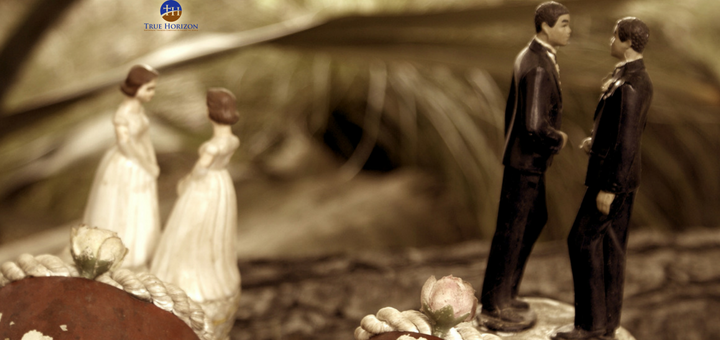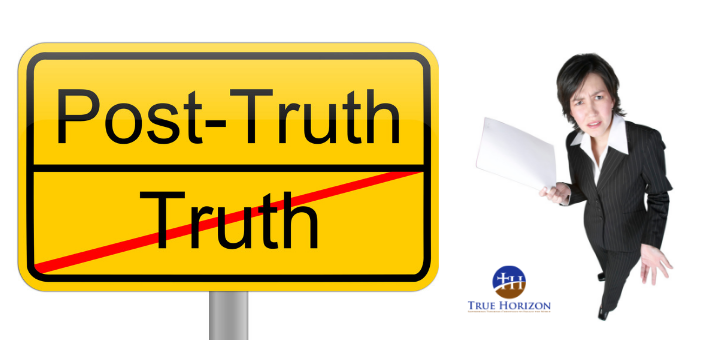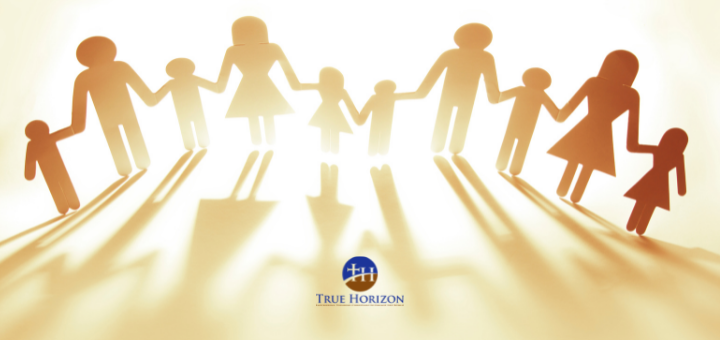Black And White Rainbows
 Almost forty years ago I joined a youth group Bible study with a band of high school acquaintances who shared two things in common: life as military brats who all lived on the same base in Michigan, and a serious pursuit of the truth of our faith. We studied the Bible, went on retreats and, as a result, that group formed the core of our social life in high school. Many of us became close and lifelong friends. In fact, I met the girl who would later become my wife in that group in 1976.
Almost forty years ago I joined a youth group Bible study with a band of high school acquaintances who shared two things in common: life as military brats who all lived on the same base in Michigan, and a serious pursuit of the truth of our faith. We studied the Bible, went on retreats and, as a result, that group formed the core of our social life in high school. Many of us became close and lifelong friends. In fact, I met the girl who would later become my wife in that group in 1976.
Another girl in that group was a year younger than me, personable, athletic, outgoing, and deeply dedicated to knowing what was taught in The Book. She was a serious disciple. She went on to complete a distinguished and honorable career in the U.S. Army, entered seminary after she retired, and was ordained an Episcopal Minister. I haven’t actually spoken to her in decades but from what I see on social media she doesn’t seem to have changed much in those 39 years. She has a lot of friends who speak highly of her and love her dearly. She still sports a big smile. She seems to love her life and to serve God as fiercely as she ever did. I’m glad to see that but I really wish it was otherwise. If so, it would be much easier to say what I’m about to say and post it publicly. But that is not that case and as a result, it pains me to write this … but I have to.
Last month my friend entered into a legalized, same-sex union with another woman.*
Now, I didn’t know this because I heard it from her. Though I have only kept in touch with her tangentially and through social media, there was no public announcement of the event that I know of. No happy Facebook post or invitation to share her joy in what one would assume was the most cherished day of her life. The only information I saw about it came from other friends and family posting congratulations and pictures on her Facebook page. While she did comment regularly on the things others said about her, she never offered a single post or picture of her own. Not one. Doesn’t that seem odd?
I don’t think it is, and I say that because I think that, deep down, my friend knows that the union she entered is not a union that would be blessed by the God she serves.
I don’t know if she will see this post or not. Honestly, it would be easier for me if she didn’t. I don’t want to hurt her feelings. No compassionate person would want to hurt a friend’s feelings. At the same time, no honest person should shy away from seeking and defending the truth. When faced with the choice between hurting someone’s feelings and acknowledging reality, I believe that all of us, whether we are devoted religious believers or hard-core secular atheists, must elevate the latter above the former.
Let me be clear in saying that it is a wonderful thing to see joy and happiness in another person; to see friends and family describe their ceremony as the most “moving and beautiful” thing they have ever witnessed. There is no doubt that the world needs to know that “love wins.” There is no basis for questioning the devotion of two people to one another or to their professed religious convictions. I have no reason to doubt that their love is real or that their devotion is genuine.
I have absolutely no reason to disparage or belittle my friend or her partner (whom I’ve never met). In fact, if she is anything like she was when we were last in contact, my friend is a more knowledgeable and committed follower of Christ, and a more loving human being, than I am or ever will be. She has dedicated her life to serving the God we share our belief in, and has lived out and demonstrated those convictions in ways I never will. I have no reason to question any of that, and I wouldn’t dare do such a thing.
But there are clear facts about what it means to be a human being made in the image of God that defy any biblical warrant for the acceptability of homosexual practice. That leads me to a perfectly logical question that I want to ask my friend:
Knowing that we both share a commitment to trust in the veracity of the Bible and to live out the precepts contained within it, on what basis would you defend either a shred of biblical support for the practice of homosexuality in general, or a defense of pseudogamy** in particular, from a straightforward reading of the text?
I have to say that I have never heard anyone who takes the Bible seriously give a legitimate answer to that question. The best response I have heard comes from Matthew Vines, who acknowledges that the Bible holds a clearly negative view of homosexual practice but claims that the homosexual practice that is addressed therein is an abusive, degrading form of homosexuality that existed at the time it was written, not the committed, monogamous relationships we see today. Vines’ interpretation is just a little bit newer than the cell phone.
As I said, Vines’ response is the best I have heard — but that doesn’t make it reasonable or acceptable. Notice that his defense of same-sex activity does not rely on anything the Bible says. Instead, it is fully dependent on something that Vines himself admits the Bible does not say.
When the best way to defend your position is to invoke a “new interpretation” of the biblical text that Christians have somehow missed for two millennia, doesn’t it seem reasonable to pause to reconsider that view, no matter what the subject matter?
I think that is a reasonable expectation … unless one is trying to rationalize the Bible with their own behavior instead of evaluating their behavior against what the Bible teaches. I think my friend knows this. She has studied her faith too extensively to not know it.
However, even if one rejects the biblical prohibitions against homosexuality, the reality of human nature and purpose — even when seen in a purely materialistic, godless universe — tells us that homosexuality leads to a Darwinian dead end. Same-sex behavior defies human nature’s purpose and design.
Pick your poison. For both biblical and natural law reasons, I believe there is a legitimate reason to hold to a negative view of the practice of homosexuality even if one admires the devotion and commitment of homosexuals. I also believe we can love someone who is homosexual but refuse to celebrate their same-sex union with another homosexual, whether the Supreme Court of the United States tells us it’s legal or not. In other words, I believe we can simultaneously share a fondness and respect for our homosexual friends, but disapprove of their actions. Real friends do that. They value their friends so much, they feel compelled to tell them the truth. Sometimes, the greatest way to love someone is to do just that.
Unfortunately though, we live in a culture where that kind of view is not allowed. It’s a culture in which saying anything negative about homosexuality is seen as uncalled for and mean-spirited. Our culture tells us that if you do what I’m doing right now you are a hate-filled, judgmental bigot. All I can say about that is that it is false. You can try to play that card if you want to but doing so is simply disingenuous. It’s a dodge that demands a black-and-white choice between acknowledging the clear truths revealed in nature and in Scripture, or condoning — yes, celebrating — all homosexual activity up to and including the public redefinition of marriage itself.
I don’t know if my friend would condemn me for disagreeing with her about the nature and purpose of marriage. It’s been a long time, but I can’t bring myself to believe she could have become a nasty, aggressive promoter of the idea that someone like me could never still be her friend. I hope that’s not the case. I may never know and we certainly may never have a conversation about it. But if we did, I would remind her of our days studying the Bible by Lake St. Clair in Michigan, and I would ask her to answer my question.
I would hope that if we ever did have that conversation, it wouldn’t turn ugly. I would hope that my friend would not approve of the way our culture in general addresses this debate. Because, even if she is an exception, the irony of this is that those who promote and celebrate the homosexual lifestyle use the rainbow as a symbol to demonstrate how they embrace a full spectrum of love and fellowship with everyone. But nothing could be further from the truth. Their rainbow is not really multi-colored. It has no hue that allows for a view like mine. It’s a black-and-white rainbow — a rainbow that demands adherence and celebration from all of us or promises retaliation and vilification against those who don’t.
It’s not a pretty rainbow at all. And the pot at the end of it is full of retribution for those who aren’t singing the right song.
* I use the term “legalized, same-sex union” because I don’t know what else to call it. What I won’t call it is a “marriage.” For reasons I will not get into here, the term “marriage” is not applicable to same-sex unions. Marriage is a specific thing. It is something we describe, not something we define. For those who may be interested in reading a full treatment of the case for marriage, I recommend the following:
What is Marriage?: Man and Woman: A Defense, by Robert George, Ryan Anderson, and Sherif Girgis. [This is a detailed treatment of the issue by philosophically sophisticated authors. If you want to engage a serious study of the case for marriage, this is your book.]
Same Sex Marriage: A Thoughtful Approach to God’s Design for Marriage, by John Stonestreet and Sean McDowell. [This book is an easier read and exactly what it says — a thoughtful approach by two excellent communicators. Great for lay readers who want to familiarize themselves with the issue and be able to discuss it winsomely but effectively.]
What Does The Bible Really Teach About Homosexuality?, by Kevin DeYoung [I have not read this book yet but Greg Koukl has called it the single best book on the topic that he knows of and I have never known Koukl’s recommendations to be anything other than spot on.]
** As far as I know, pseudogamy is a term coined by Anthony Esolen, a writer for Touchstone Magazine and one of the most insightful, unapologetic, and powerful defenders of Christianity that I have ever read.






Well articulated! I go back to what we are called to do … love. We are not called to affirm or encourage. Truthfully, affirming and encouraging are easier – it keeps everything neat, tidy and at arm's length. Pain runs deep for some in the homosexual community. Yet another reason why we are called to love. Thanks for sharing your thoughts – it's not an easy topic in which to be so vulnerable!
Exactly right. Thanks for your thoughts "anonymous" (I know who you are) 🙂
On a side note, Matthew Vines has already had multiple individuals (James White, Michael Brown, Robert Gagnon, etc) do lengthy rebuttals to all of his arguments. Mysteriously, Vines refuses to debate or respond to any of them and has a history of blocking and deleting anyone who challenges his positions via social media.
Spencer .. I completely understand why Matthew Vines would operate that way. It's really annoying and embarrassing to try to defend the indefensible against people who understand your game … and are better at it than you.
Hopefully, he and those who have bought his program will stop suppressing the truth someday.
Thanks …